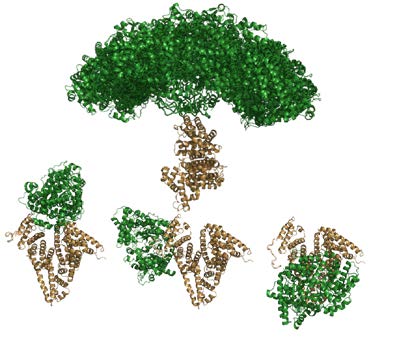Protein-based therapeutics have become an essential part of medical treatment. Despite all the advantages of protein-drugs, their stabilization is challenging. Under inappropriate conditions, they might lose their activity and induce severe adverse effects. Stabilization and formulation of protein-drugs is one of the most critical, time-consuming and expensive steps in drug development. Many promising protein-drugs have failed clinical trials due to their stability challenges. Unfortunately, no general rules for the formulation process have been reported and it is not yet possible to predict the behavior of different proteins under different conditions.
This Ph.D. thesis is a part of the Protein-excipient Interactions and Protein-Protein Interactions (PIPPI) project, which goal is to improve the molecular understanding behind protein stabilization and thereby aid the formulation process. The focus of the PhD work is investigation of the stability of three different types of multidomain proteins: transferrin, albuminneprilysin fusion protein, and monoclonal antibodies. All of them were systematically studied under different physicochemical conditions using high-throughput techniques. These studies were used to choose conditions for structural investigations using small angle X-ray scattering. The results were combined with in-silico methods, such as MD simulation to provide a better understanding of stability on the molecular level. Despite the common trends in stability, all studied multidomain proteins show different behaviors, which can be explained from the molecular structures and interactions. Additionally, the dissertation shows that a combination of multiple methods leads to a better understanding of protein stability.

Different molecular conformations of albuminneprilysin fusion protein.